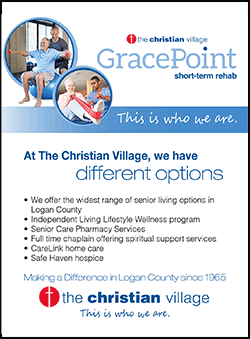|
 Rachel Oney provides case management for the
Pathway to Hope programs, which help families, individuals, and
veterans at risk for homelessness. Rachel Oney provides case management for the
Pathway to Hope programs, which help families, individuals, and
veterans at risk for homelessness.
Clients in Pathways of Hope’s Supportive Housing Program must
initially meet with a Pathway of Hope team to develop a personalized
service plan. As clients continue in the program, progress is
measured through three assessments including a strength and needs
assessment, a readiness to change assessment, and a measurement of
how hopeful the client is.
Clients are intended to meet with a case manager weekly at a local
establishment such as the library or a fast food place and the case
manager will check to see how clients are working toward their
goals. The case manager also links clients and families to community
resources and assists with financial funding when it will help
clients either remain stable or become more stable.
Oney said the program helps stabilize families so they will be
financially self-sufficient.

The program can assist with employment services, interview
preparation, resume writing, job skills, budget planning, and
connecting them with the Department of Human Services to get
Medicaid set up.
Operating through a federally funded supportive housing grant allows
the case manager discretion to spend money for qualifying clients if
it is justifiable, and helps to keep clients self-sufficient by
staying employed or able to attend to training, classes, or school.
The money may even be used to help keep families housed safely.
The five categories the case manager may spend money for are
employment, legal fees, child care, transportation, and education.
In these categories, funds may be used to help clients obtain photo
IDs or licenses, social security cards, birth certificates, divorce
filing fees for those fleeing domestic violence situations, short
term child care for those attending a course, gas cards, minor car
repairs, and payment for GED exams, CNA courses or other short-term
courses.
The Pathway of Hope links clients to community services,
organizations, and resources in order to help the families become
more self-sufficient and be able to support themselves if they find
themselves in similar situations.
Resource connections are provided by Pathway of Hope for childcare
and education, transportation, legal documents, and job skills.
Oney said the program will also provide spiritual
guidance if needed by referring clients to one of the local
churches. With the support system Pathways offers more hope and
clients are more likely to push themselves forward.
The Pathway of Hope Grant Per Diem Program
provides bridge transitional housing for veterans at the Lincoln
Service Extension located at 307 N. Kickapoo Street.
[to top of second column] |

In Lincoln, the Salvation Army will be able to house
eleven individual male veterans. According to the program brochure,
“While staying in our safe and comfortable accommodations, veterans
will be linked with an appropriate housing intervention and receive
assistance in preparing for their future."
This program will help veterans with services such as employment
assistance, applying for social security and/or VA benefits, links
to numerous community resources and services, life skills training,
assistance with finding and securing housing as well as resources to
help maintain housing, and transportation to appointments.
Both programs provide support systems that help clients become
self-sufficient and financially stable.
 |